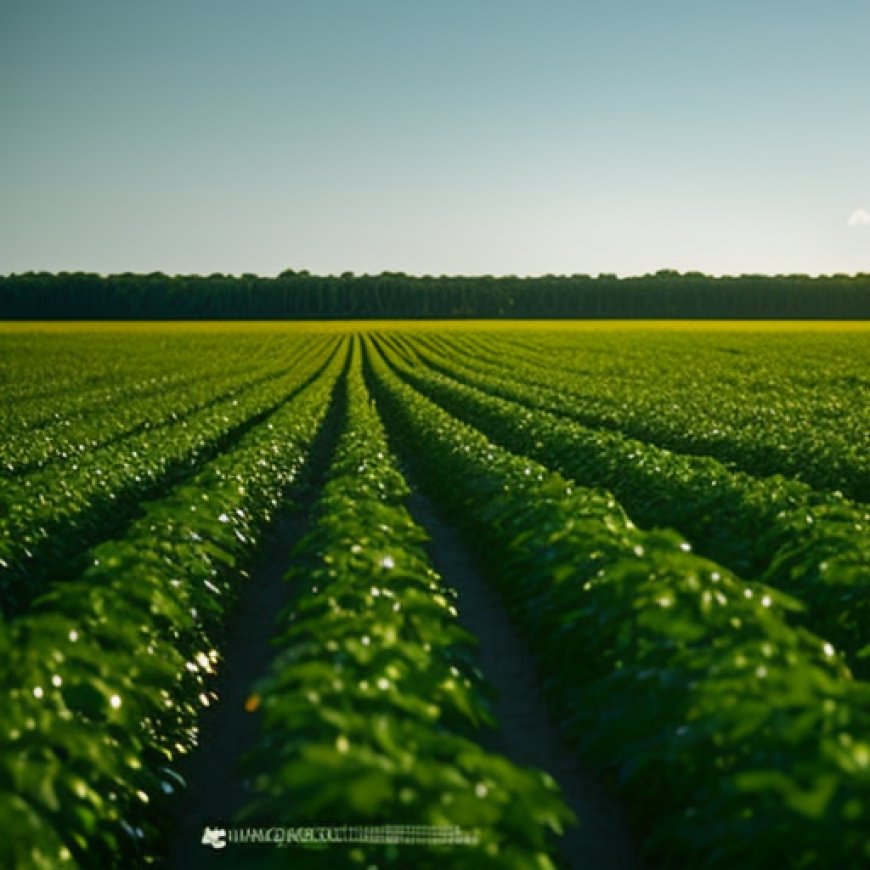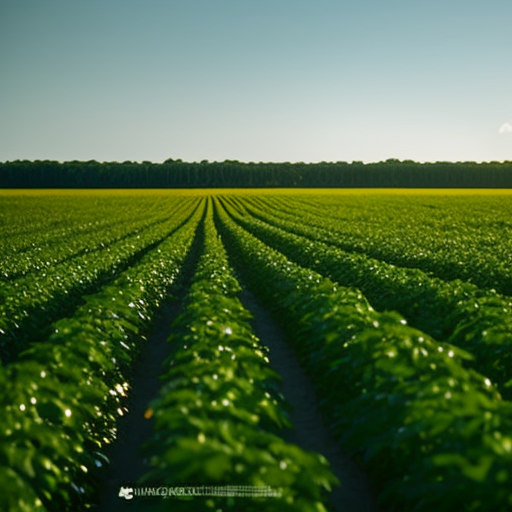This land is our land: States crack down on foreign-owned farm fields • Missouri Independent
This land is our land: States crack down on foreign-owned farm ... Missouri Independent


Foreign Ownership of Farmland Raises Concerns in Mississippi

Andy Gipson gets concerned even when American allies such as the Netherlands and Germany invest in large swaths of Mississippi’s farmland.
“It just bothers me at a gut level,” he said.
For Gipson, Mississippi’s commissioner of agriculture and commerce, the growing trend of foreign ownership could threaten what he views as the state’s most valuable asset: the land that grows its forests, rice, and cotton.
“It is our ability as a country, as a state to produce our own food, our own fiber, and our own shelter,” he told Stateline. “And I think every acre that’s sold to anybody outside of this country is one less acre that we have to rely on for our own self-interest, our own national food security.”
Mississippi’s Efforts to Address Foreign Ownership
Gipson has spent recent months studying the growing amount of his state’s farmland being bought up by foreign interests. He chaired a study committee that just issued a 363-page report on the issue requested by the legislature after a lawmaker had offered a bill to completely ban foreign purchases.
Since its constitution was approved in 1890, the state has had provisions restricting land ownership by “nonresident aliens,” the report noted. But the committee concluded current state law “lacks a clear, workable enforcement mechanism.” The U.S. Department of Agriculture reports that foreign interests held some 757,000 acres of Mississippi’s agricultural land, about 2.5% of the total. Gipson hopes the Republican-led legislature will stiffen the law in the upcoming session.
“I think the time is going to be right in 2024 for the legislature to tighten these laws up,” he said.
State Efforts to Restrict Foreign Ownership of Farmland
If the legislature acts, Mississippi will join a growing group of states seeking to ban or further restrict foreign ownership of farmland. Lawmakers are targeting nations considered hostile to U.S. interests, such as China and Russia, and looking for new enforcement measures. Many see Arkansas as leading the latter push; officials there invoked a new law in October that bans certain foreign owners and ordered a Chinese seed company to divest its land.
Nearly half the states have some restrictions on the books, some of them dating back to the 1700s.
In Missouri, momentum stalled during the 2023 session on a bill restricting foreign farmland ownership, as proponents split on how expansive the ban should be. Until 2013, no foreign countries were allowed to purchase Missouri farmland. That was changed to implement a 1% cap on the percentage of Missouri farmland that can be owned by foreign entities.
Concerns and Considerations
While the debate is as old as the nation itself, the issue has been reinvigorated in recent years after Chinese firms purchased land near military installations in North Dakota and in Texas, said Micah Brown, an attorney at the National Agricultural Law Center at the University of Arkansas who tracks the issue.
Brown said lawmakers in 36 states proposed some sort of legislation on the issue this year, ranging from caps to bans to targets on certain countries, with measures passing in about a dozen of them. More bills are expected in upcoming sessions.
Some lawmakers and experts warn that such laws could go too far, making it difficult for some farmers to sell their land, discouraging economic development, or even leading to discrimination against certain groups of people such as Asian Americans.
Foreigners held an interest in about 40 million acres of U.S. agricultural land at the end of 2021, according to the U.S. Department of Agriculture. Canadian investors own the largest share of that acreage, followed by investors from the United Kingdom and Europe. Foreign ownership represents only about 3.1% of all privately held U.S. agricultural land. But the number is quickly rising: Foreign ownership has increased more than 50% in the past decade, Brown said.
But USDA data shows Chinese ownership is still relatively rare: Chinese interests own less than 1% of the nation’s foreign-held agricultural acreage.
Federal law currently does not regulate foreign ownership land beyond requiring foreign buyers to register with the USDA. But there is bipartisan interest in Congress in tighter restrictions and reporting on foreign ownership.
At the state level, much of the legislation has been proposed by Republicans, though Brown said it’s largely enjoyed bipartisan support — particularly when bills target ownership by nations considered hostile to American interests.
Arkansas Leads on Enforcement
In October, Arkansas Republican Gov. Sarah Huckabee Sanders invoked the war between Israel and Hamas as she announced her state was taking its first action against foreign ownership of agricultural land.
Sanders described America’s “enemies,” naming not just Hamas, but also China, Iran, and Russia as “on the march.”
“Yet for too long in the name of tolerance we’ve let these dangerous governments infiltrate our country,” she said. “Arkansas will tolerate them no longer.”
The state ordered seed and pesticide maker Syngenta to sell 160 acres of land it owns in Northeast Arkansas and uses for research. Legislation passed during the 2023 missouriindependent.com

Join us, as fellow seekers of change, on a transformative journey at https://sdgtalks.ai/welcome, where you can become a member and actively contribute to shaping a brighter future.







